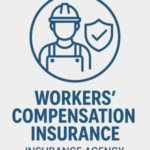In today’s dynamic workforce landscape, staffing companies play a pivotal role in connecting businesses with the talent they need to thrive. Though, with this comes the critical obligation of managing workers’ compensation effectively. For employers operating within Georgia,understanding the nuances of the state’s workers’ compensation system is essential for minimizing risk,ensuring compliance,and protecting both their staff and bottom line. This guide offers a extensive overview tailored specifically for staffing companies, providing key insights into Georgia’s workers’ compensation requirements, best practices for risk management, and strategies to navigate claims efficiently. By equipping employers with this knowledge,businesses can foster safer workplaces and maintain operational resilience in an increasingly complex regulatory surroundings.
Table of Contents
Understanding Georgia Workers’ Compensation Requirements for Staffing Companies
staffing companies operating in Georgia must navigate a distinct set of workers’ compensation regulations designed to protect both the temporary employees they place and their own operational interests. unlike conventional employers, staffing firms often face complexities due to multi-employer arrangements, which can blur the lines of responsibility in the event of workplace injuries. To ensure compliance, it is crucial to understand that Georgia law mandates staffing companies to provide workers’ compensation coverage for all temporary workers they assign to client businesses, regardless of the client’s insurance status. This legal requirement aims to guarantee prompt medical care and wage replacement for injured staffers without dispute over who bears liability.
Key compliance factors for staffing firms include:
- Timely policy acquisition: Staffing companies must secure and maintain valid workers’ comp policies specifically covering their temporary workforce.
- Clear contractual boundaries: Agreements with client companies should explicitly state each party’s responsibilities concerning workers’ compensation claims and premiums.
- Claims coordination: Efficient processes must be established to handle injury claims swiftly, preventing costly litigation or regulatory penalties.
| Compliance Aspect | Staffing Company Responsibility | Client Company Role |
|---|
| Insurance Coverage | Obtain and maintain workers’ compensation policies | Verify staffing firm’s coverage |
| Claims Handling | Report and manage temporary workers’ claims | Provide injury details post-incident |
| Risk Mitigation | Conduct safety training specific to job roles | Maintain safe work environment |
Best Practices for Managing Risk and Compliance in Staffing Operations
Effective risk and compliance management in staffing operations hinges on proactive oversight and continuous education. Employers must maintain rigorous documentation of all staffing arrangements, including clear contracts outlining workers’ compensation responsibilities. Regularly updating these agreements ensures alignment with Georgia’s evolving regulatory landscape.Moreover, fostering a culture of safety through ongoing training sessions tailored to the specific risks faced by temporary workers can significantly reduce compensation claims and associated costs.
Implementing a structured compliance checklist can streamline adherence to both state and federal guidelines. Consider the following essential elements to consistently monitor:
- Verification of employee classification: Distinguish temporary workers from autonomous contractors to avoid misclassification penalties.
- Timely reporting procedures: Establish clear lines of communication for incident and injury reporting to ensure prompt workers’ comp claims processing.
- Insurance coverage auditing: Periodically review insurance policies to confirm adequacy and avoid coverage gaps.
| Compliance Area | Frequency | responsible Party |
|---|
| Employee Classification Review | Quarterly | HR Manager |
| Incident Reporting Audit | Monthly | Compliance Officer |
| Insurance Policy Review | Annually | Risk Manager |
Strategies for Effective Claims Handling and Prevention in the Staffing Industry
Implementing a comprehensive claims handling protocol is essential for staffing companies to manage workplace injuries effectively and minimize financial exposure. Start by fostering clear communication channels between the employer, the injured worker, and the insurance carrier. Immediate injury reporting and documentation, combined with prompt medical evaluation, ensure that claims are processed accurately and transparently. Additionally, investing in ongoing training for supervisors about risk identification and claims procedures can prevent claim mismanagement and reduce the likelihood of disputes.
Preventative measures are equally important and should include:
- Regular safety audits and workplace hazard assessments tailored to staffing environments.
- Progress of return-to-work programs designed to accommodate injured workers and shorten downtime.
- Collaborative partnerships with medical providers to facilitate accurate diagnosis and appropriate care.
- Consistent review and adjustment of staffing assignments to match worker capabilities and reduce injury risk.
By integrating these strategies, companies can both streamline claims management and foster a safer workplace culture that controls costs and protects employees.
Tailoring Workers’ Compensation Policies to Meet Staffing Companies’ Unique Needs
Staffing companies operate with complex risk profiles that require more than generic workers’ compensation policies. Unlike traditional employers, they manage a rotating workforce spanning multiple clients, industries, and work environments. To effectively mitigate exposure, policies must incorporate flexible coverage options, including end-to-end risk assessments, claims management strategies, and tailored premium structures. By partnering with insurers who understand the nuances of contingent labor, staffing firms can ensure coverage aligns with both client contracts and the dynamic nature of their workforce.
Key elements to consider when customizing coverage include:
- Multi-client risk pooling: Spreading risk across diverse job placements to avoid premium spikes.
- Classification management: Accurately assigning job codes that reflect varied roles and associated risks.
- Claims tracking integration: Utilizing technology that consolidates incident data across different client sites.
| Factor | Staffing Company Approach | Typical Policy Adaptation |
|---|
| Workforce Variability | High turnover, multiple industries | Flexible premium adjustments |
| Client Locations | Multiple job sites | extended jurisdiction coverage |
| Job Classification | Diverse roles & risk levels | Custom classification codes |
Q&A
employers’ Guide to GA Workers’ Comp-Staffing Companies: Q&A
Q1: What is workers’ compensation and why is it critically important for staffing companies in Georgia?
A1: Workers’ compensation is a state-mandated insurance program that provides medical benefits and wage replacement to employees injured on the job. For staffing companies in Georgia,it is crucial because it protects both the temporary workers they place and their own business from costly legal claims and financial liabilities related to workplace injuries.
Q2: how does workers’ compensation coverage work for staffing companies versus their clients in Georgia?
A2: In Georgia, staffing companies are generally responsible for providing workers’ compensation insurance for the temporary employees they supply. This means the staffing agency acts as the employer and must ensure coverage regardless of the client company’s own workers’ comp policy. Proper coordination helps prevent coverage gaps and compliance issues.
Q3: What are the key responsibilities of staffing companies regarding workers’ comp compliance in georgia?
A3: Staffing companies must:
- Obtain and maintain appropriate workers’ compensation insurance coverage for their employees.
- Accurately classify employees according to their job duties to ensure correct premium calculations.
- Report payroll and employee facts transparently to insurers.
- Educate both employees and client companies about injury reporting protocols.
- Manage claims promptly to minimize exposure and ensure employee well-being.
Q4: How can a staffing company in Georgia manage risks associated with workers’ compensation claims?
A4: Effective risk management includes:
- Conducting thorough employee screening and safety training.
- Partnering with reputable insurers experienced in temporary staffing risks.
- Implementing robust injury prevention programs.
- Maintaining clear communication channels between staffing agencies, client sites, and injured workers.
- Keeping detailed records and promptly addressing claims to reduce costs and litigation risks.
Q5: Are ther any specific challenges that staffing companies face with workers’ compensation in Georgia?
A5: Yes, challenges often include determining correct coverage responsibility, especially when multiple parties are involved; accurately classifying diverse job roles; and managing claims across various client sites with differing safety standards. Additionally, fluctuations in workforce size can complicate premium estimation and compliance efforts.
Q6: What steps should employers take to ensure compliance with Georgia’s workers’ compensation laws as staffing companies?
A6: Employers should:
- Confirm that they are properly classified as employers under Georgia law and maintain the required insurance policy.
- Stay informed about changes in Georgia workers’ compensation regulations.
- Work closely with legal and insurance advisors specialized in staffing industry risks.
- Conduct regular audits of workers’ compensation practices and payroll data.
- Foster a culture of safety and prompt injury reporting across all client placements.
Q7: How does workers’ compensation insurance impact the staffing company’s relationship with client companies?
A7: Proper workers’ compensation coverage reassures client companies that temporary workers are protected without exposing them to additional liability. Obvious policies and clear communication around coverage responsibilities help build trust and facilitate smooth operational relationships between staffing companies and their clients.
This Q&A provides a focused overview tailored to staffing companies navigating Georgia’s workers’ compensation landscape, emphasizing compliance, risk management, and employer obligations.
Future Outlook
navigating workers’ compensation in Georgia presents unique challenges for staffing companies, but with a thorough understanding of state requirements and best practices, employers can effectively manage risk and ensure compliance.by implementing robust safety protocols, maintaining clear communication with assigned employees, and partnering with learned insurance providers, staffing firms can protect their workforce and sustain operational continuity. Staying informed on evolving regulations and leveraging expert guidance will position employers to confidently address workers’ comp complexities and foster a safer, more resilient workplace.
“This content was generated with the assistance of artificial intelligence. While we strive for accuracy, AI-generated content may not always reflect the most current information or professional advice. Users are encouraged to independently verify critical information and, where appropriate, consult with qualified professionals, lawyers, state statutes and regulations & NCCI rules & manuals before making decisions based on this content.










